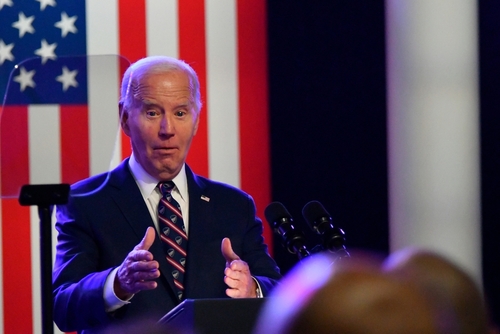
In a recent interview, Russian President Vladimir Putin has made a surprising admission regarding his preferences in American leadership. Putin has stated that he favors President Joe Biden over former President Donald Trump, citing the current president’s predictability and experience as key factors in his preference.
Putin’s remarks come at a time when global politics are particularly volatile, with tensions between Russia and the West at a high point. The Russian leader described Biden as “a more experienced, predictable person, a politician of the old school,” which suggests a preference for a known quantity in international relations over the unpredictability that often characterized Trump’s tenure.
Putin says he would prefer Biden to become the next US president. Reverse psychology? pic.twitter.com/wf4OErjgUj
— Anton Gerashchenko (@Gerashchenko_en) February 15, 2024
The Russian President’s comments may raise eyebrows among conservative circles, where Biden’s approach to foreign policy has been criticized as weak or ineffective. Putin’s endorsement could be seen as an indication that adversaries prefer a less confrontational U.S. president, one who might be perceived as easier to manage on the world stage.
Despite his stated preference for Biden, Putin also expressed confidence in working with Trump, should he return to power. “We will work with any U.S. president who the American people have confidence in,” Putin declared, showcasing a willingness to engage with whoever holds the office.
This is why Putin prefers Biden to Trump.🤣🤣🤣 pic.twitter.com/lfrhmZQ2tH
— AJ Huber (@Huberton) February 15, 2024
The timing of Putin’s comments is noteworthy, coinciding with debates about NATO’s role in the current geopolitical climate. Trump’s stance on NATO has been controversial, with the former president suggesting he would encourage Russia to “do whatever the hell they want” if it attacked a country not meeting its defense spending obligations. This position starkly contrasts with Biden’s firm support for the alliance.
President Biden personally condemned Trump’s comments on NATO, calling them “dumb, shameful, dangerous,” and “un-American.” These strong words from Biden underscore the current administration’s commitment to the transatlantic alliance and collective security.
NATO Secretary General Jens Stoltenberg also weighed in, criticizing Trump’s remarks for undermining the security of the alliance and potentially increasing risks for American and European soldiers. This criticism from NATO’s leadership further highlights the divide in how the two American leaders are viewed when it comes to international defense commitments.
As the United States approaches another election cycle, Putin’s comments add an intriguing dimension to the discourse on foreign policy and leadership. While some may interpret his preference as an endorsement of Biden’s steady hand, others in conservative circles may view it as a strategic move by Russia to favor a U.S. administration that it perceives as less challenging to its interests.












